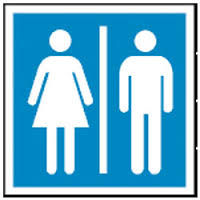
All of us know that discrimination in the workplace still happens, based on race, gender, religion, national origin, sexual orientation, or physical or mental disability. People belonging to these “protected classes” often are less likely to be hired and more likely to be fired, unfairly compensated, passed over for promotions, or forced to work in a harassing or even dangerous environment.
One at-risk group that is becoming more prominent in public awareness, as Bruce/Caitlin Jenner has shown, is transgender people-those who identify with a different gender than the one assigned at birth. “More than one in four transgender people have lost a job due to bias, and more than three-fourths have experienced some form of workplace discrimination.” See http://www.transequality.org/issues/employment. Transgender people are also more likely to experience physical violence in the workplace, which can lead to a need for medical or mental health care, unemployment and even homelessness. In New Jersey, employers should take special care to remember that there are strong laws protecting transgender employees and to make sure that their office policy provides that protection.
In 2007, New Jersey included “gender identity or expression” in its list of protected classes under the New Jersey Law Against Discrimination (LAD). This includes those who identify as transgender (who may or may not decide to undergo gender reassignment surgery), as well as those who prefer to express their identity in gender-nonconforming ways (such as those who wear androgynous clothing, or those who cross-dress). Employers must include gender identity or expression in all anti-harassment and anti-discrimination policies and training sessions, and must provide notice to employees of this protection. Other obligations may not be as obvious. Businesses must limit dress codes to cleanliness and hygiene and allow workers to dress in ways that reflect their gender identity. They must also allow their employees to use whichever bathroom conforms with their gender identity-and employers are encouraged to either additionally provide gender-neutral bathrooms or convert all bathrooms to gender-neutral ones.
In addition to the legally mandated protections, employers should foster workplaces that encourage understanding and respect by co-workers (which are detailed in federal programs such as the Equal Employment Opportunity Commission and Occupational Safety and Health Administration). Things like using a person’s preferred pronoun, addressing workplace harassment complaints from transgender employees immediately (and, if applicable, anonymously), not requiring medical documentation for proper bathroom and locker room usage, and encouraging on the job education about transgender employees go a long way in creating a professional space where all employees would feel comfortable, while building protections against lawsuits or other discrimination claims. Discrimination can come in many forms, both overt and subtle. It’s the right thing – and the smart thing – for New Jersey businesses to prevent it from happening to their employees. Loree Varella, Rutgers School of Law Newark candidate for a JD degree in May 2016 collaborated with me on this blog. She is Associate Editor of the Rutgers Computer and Technology Law Journal and Managing Research Editor of that publication.

